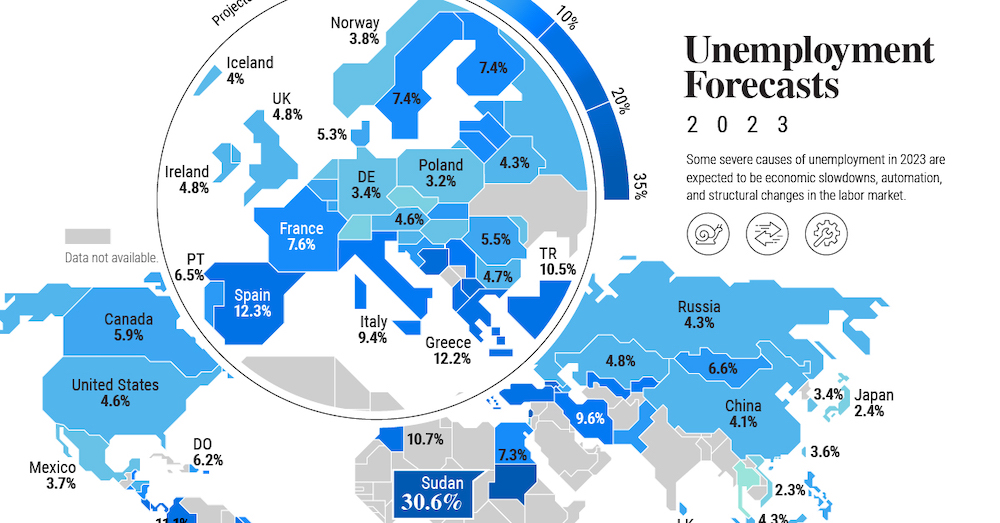Italian unemployment and housing issues have been discussed and debated endlessly, here at Dispatches Europe and among the expat community at large. But these two glaring centerpieces of Italy’s economy should be revisited regularly by aspiring expats. They are among numerous economic challenges constantly being addressed by the government, which include taxes, infrastructure, energy and climate initiatives and more.
Obviously these internal struggles will continue to affect the ability (or the wisdom) of becoming an expat in Italy at all.
As I’ve always said, anyone considering making this move must lose the rose-colored specs.

Unemployment – something has to give
Unemployment is a big deal here, but youth unemployment is jaw-dropping. The unemployment rate for ages 15-24 has for years hovered at about 30 percent (not a misprint), while the overall rate is currently about eight percent.
There are many factors.
Some say Italian culture doesn’t help matters, given that young people are generally pretty spoiled. It is not unusual to live under parents’ roofs, or even have apartments paid for by parents, at age 30 and beyond Others say the education system doesn’t sufficiently train and prepare young people for the workforce.
Whatever the reason, something has to give.
Workers in demand
Workers most in demand include medical professionals and other higher education positions, the bright side being Italy’s affordable higher education. But competition for blue collar jobs is fierce. Non-Italian speakers must consider how much more difficult their employment plight will be, particularly anywhere outside of tourist areas.
Of course, tourism is crucial to Italy’s economy, and from the hordes I’ve seen here in Florence this spring, it has fully bounced back (maybe even over-corrected). But it is a two-edged sword. There is price-gouging galore, and tourists must be more aware than ever that this country is scraping by largely on their backs. (And there is that tinge of resentment from some locals toward what they see as an invasion.)
As everywhere, economic trends in Italy encompass many dynamics. Reuters reported this spring that the Italian Economy Minister offered a less grim economic outlook than previously expected, despite high energy prices and record inflation. But, being one of the highest-debt countries in Europe, there also remained a warning that European Central Bank rate hikes would pose serious problems for the economy.
The devastating flooding in the northern Emilia Romagna region in May left tens of thousands of Italians displaced, and damage that is still being assessed. The government announced a 2 billion-euro aid package to assist farmers, business owners and others who suffered substantial losses. There is also talk of raising ticket prices for state museums and other public venues to pay for repairs to cultural institutions.
Discussions continue as to whether climate change is and will be the cause of such natural disasters that will affect the economy going forward.
Expats
So, where do expats fall in all the turmoil? Long-termers and retirees who don’t want to get caught up in the home-buying maze count ourselves fortunate to have found long-term rentals. Digital nomads seem to be holding their own, although not without challenges, particularly where housing is concerned.
As for short-termers such as students, many are fortunately not in the job market, and may be able to navigate the housing problem together with roommates. But overall, it’s just not easy.
Word to the wise: Beware of shady rental agencies. Word of mouth and classifieds in English language news magazines such as The Florentine are invaluable.
Concerning to some is a new draft law released by Italy’s Tourism Ministry that would curb short-term rentals, including Airbnb and the like. Such restrictions are catching on throughout much of the European Union. According to Euronews, “it aims to address not only a worsening shortage of affordable housing in major Italian cities but to partially provide a solution to chronic overcrowding in many tourist destinations.”
The law proposes to combat “increased rental prices, making it difficult for students and young professionals to find suitable housing,” as well as to attract locals back to city centers. Naturally, not everyone is happy with the new law, with ongoing debates between locals, hotel owners, and others.
While the Italian government is making valiant efforts to steady Italy’s economy, many of the challenges it faces are new. After all, there was no such thing as Airbnb or climate change initiatives even a few years ago. So, many of the attempts to correct economic ills may seem like they’re making it up as they go.
Because they are.
Also, it must be remembered that Italians come first (rightfully so, of course). So, expats and tourists can still find that escape they may seek, but these days it will require a little extra effort.
––––––––––
Read more about Italy here in Dispatches’ archives.
Carla Bastos is an expat writer living in Italy.















